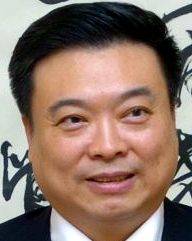New ambassador tasked with expanding China's economic links and cooling nuclear ambitions
China's newly appointed ambassador to the Democratic People's Republic of Korea is on a mission to warm up relations between the neighbors against a backdrop of the DPRK's recent outreach to Russia, experts said.
New ambassador's profile

China has appointed Li Jinjun, deputy head of the CPC Central Committee?s International Department, as ambassador to the Democratic People?s Republic of Korea.
President Xi Jinping made the appointment in line with decisions of the Standing Committee of the National People?s Congress, according to a news release from the top legislature on Wednesday.
Li, 59, will be the second Chinese ambassador to the DPRK chosen from the International Department, following Liu Hongcai, who ended his five-year mission in February and has returned to his post in the department.
Li studied German at Shanghai International Studies University in the early 1970s and once studied overseas in the former Federal Republic of Germany. A seasoned diplomat, he served as ambassador to Myanmar from 2001 to 2005 and ambassador to the Philippines from 2005 to 2007.
China sent its first ambassador to Pyongyang in 1950. Li will be the 17th envoy.
Yang Xiyu, a researcher for the China Institute of International Studies, said the new ambassador is both senior and seasoned and is expected to improve relations and facilitate nuclear talks.
President Xi Jinping appointed Li Jinjun, deputy head of the CPC Central Committee's International Department, as ambassador to the DPRK on Wednesday.
Yang said Li is trusted because of his ability to ease tensions with neighboring countries. He served as ambassador to Myanmar from 2001 to 2005 and ambassador to the Philippines from 2005 to 2007.
He is one of China's few minister-level ambassadors ? one level senior to most other ambassadors ? signaling the geopolitical importance of the DPRK. Other countries with senior ambassadors include the United States, Japan and the United Kingdom.
One day before Li's appointment was announced, he met with Dai Yulin, Party chief of Dandong, a land port in Liaoning province on the border with the DPRK, according to the Dandong government's website. During the meeting, Li promised to "pull all the resources together to promote the opening-up of the border city".
Yang said the ambassador to the DPRK is an important and sensitive diplomatic post, and Li will be tasked with the improvement of relations by strengthening economic ties and stepping up efforts to stop the country from pursuing nuclear weapons.
Ties with China have cooled since Kim Jong-un took over the country after his father died in 2011. In 2013, the country conducted its third nuclear test.
Now, nearly four years after Kim assumed office, he has yet to visit China. The Kremlin said Kim is expected to visit Moscow in May for his first overseas trip as top leader, although the DPRK has not provided confirmation.
The DPRK's relations with Russia heated up as the country's exports to Moscow increased more than 30 percent in 2014 to $10 million ? one of its efforts to intensify exchanges. The two countries also declared 2015 a year of friendship for the first time.
Zhang Liangui, a research fellow of Korean studies at the Party School of the CPC Central Committee, said the DPRK is trying to stretch its diplomatic muscles to engage more in global affairs, including sending delegations to international organizations and to the Republic of Korea in October to attend the closing ceremony of the Incheon Asian Games. But the effects of these visits will be limited if the country does not drop its nuclear weapons ambitions, Zhang said.
He said China's relations with the DPRK may undergo ups and downs, but it is not affected by any single events.